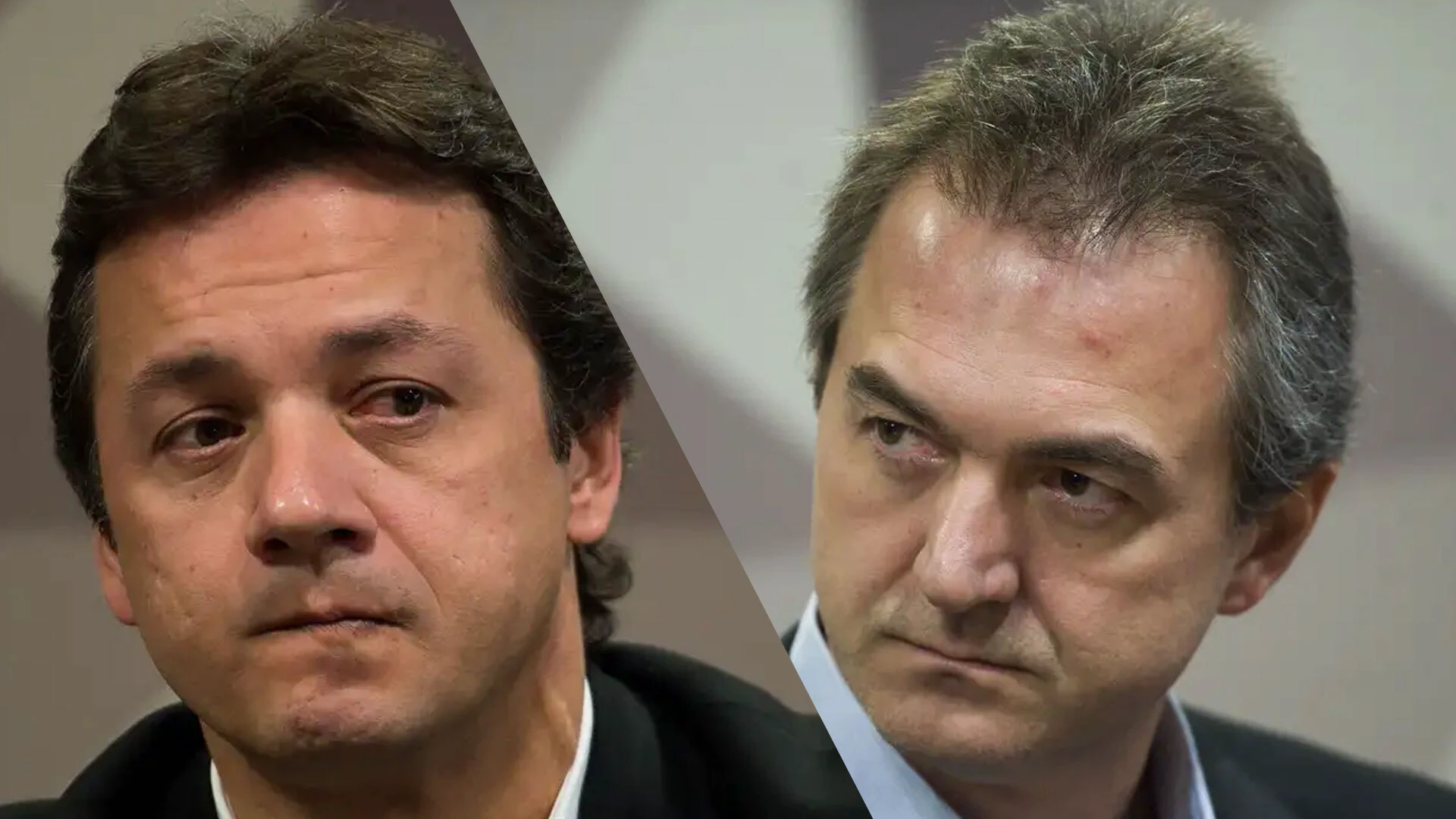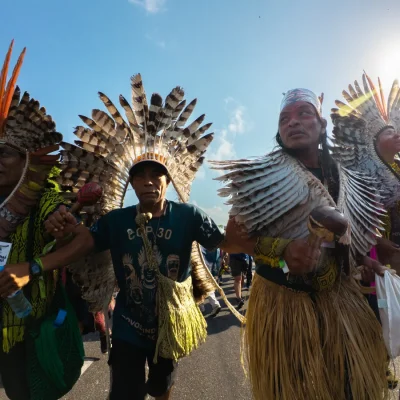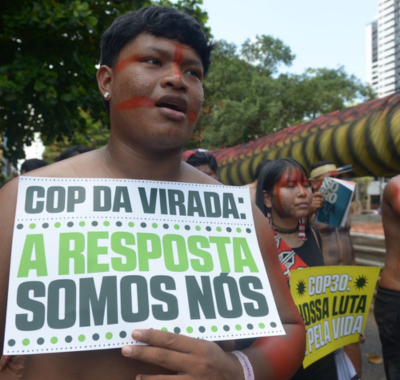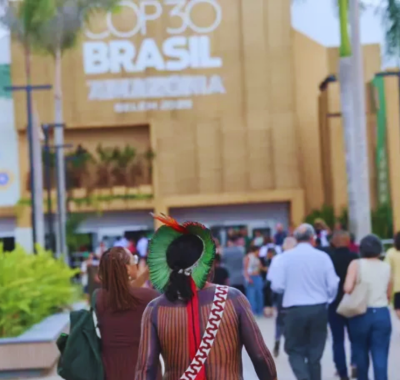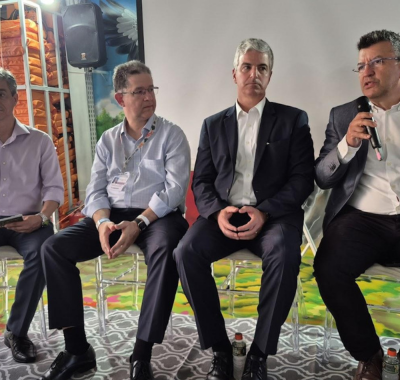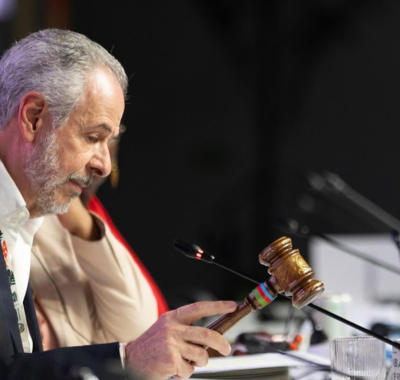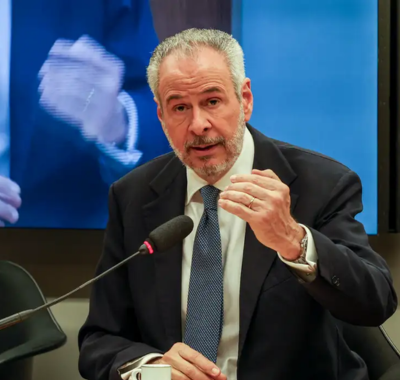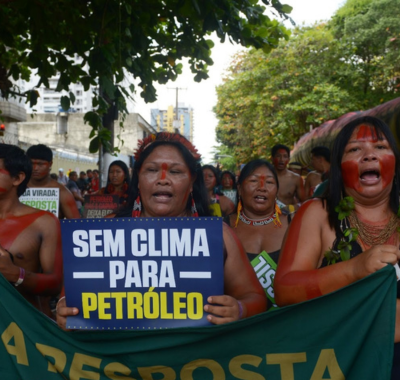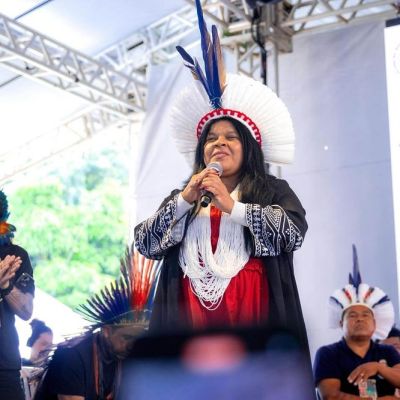Credit: Marcelo Camargo/Agência Brasil/Photo montage
Translated by Roberto Cataldo/Verso Tradutores
The Batista brothers, owners of JBS — the world’s largest beef producer — who were investigated in the Lava Jato corruption scandal, are accredited by the host country with access to the restricted area of the Conference.
Isabel Seta, Bruno Fonseca
Editing: Ludmila Pizarro
Mr. Joesley Mendonça Batista and Mr. Wesley Mendonça Batista. That is how the names of the billionaire brothers who own J&F Holding – which in turn owns the JBS brand and other companies – appear on the COP30 “VIP list,” granting them access to the blue zone of the 2025 UN Climate Change Conference. And it was Brazil that placed them on this list. That’s right, the Batista brothers are guests of the host country, in this case, the Brazilian State.
The United Nations Framework Convention on Climate Change (UNFCCC) published the preliminary list of conference participants this Monday, November 10th. It includes the names of Wesley and Joesley Batista as “guests of the host country,” representing JBS.
There are several ways to be accredited to the Blue Zone, the restricted area of COP30 where diplomatic negotiations take place among the nearly 200 countries that signed the UN Convention on Climate Change. The host country is entitled to a limited number of guests – the list includes the Batista brothers as well as representatives from the oil industry such as Petrobras and ExxonMobil, and mining companies like Vale, Samarco, Sigma, and the Brazilian Mining Association.
Brazil’s guest list also includes representatives from civil society organizations such as the Alana Institute, which is focused on education, and from Indigenous Peoples and traditional communities such as the Yanomami Hutukara association and the Indigenous Council of Roraima. However, quilombola communities have been complaining for weeks about the low number of badges for their representatives at the event – and the list released now shows that they only managed to secure five credentials as Brazil’s guests.
Brazil can also list a number of people to be in the so-called party overflow, who become part of the Brazilian delegation even if they do not act as “negotiators” (who are called “parties”). This group includes representatives from NGOs and associations of traditional communities, as well as companies.
Pública has learned that Wesley and Joesley were not on the list for the previous COP, held in Azerbaijan, despite JBS having three accredited representatives, and questions were sent to the company’s press office. By phone, they informed Pública that the two businessmen are not participating in the COP this Tuesday but did not deny their accreditation.
JBS: Environmental fines and the climate crisis
Owned by the Batista brothers, JBS is the world’s largest beef producer and the leading company in the agribusiness sector. It has a direct impact on the climate – and has been criticized and fined for it.
According to Pública’s investigation, this year alone, JBS SA has been fined four times by the Brazilian Institute of Environment and Renewable Natural Resources (Ibama). Together, the four fines exceed R$ 660,000 for violations in the states of Pará, Mato Grosso do Sul, and São Paulo. The highest fine, levied in Pará, is related to another phase of Operation Cold Meat, which has been investigating deforestation and illegal cattle ranching in the Amazon.
This year, Pública revealed that JBS may have exported beef and leather produced with cattle from illegal farms in Pará to the European Union. A report by Human Rights Watch (HRW) indicated that illegal cattle affect the Cachoeira Seca Indigenous Land, home to the Arara people, and the Terra Nossa Sustainable Development Project.
In 2024, Pública revealed that a survey conducted by US-based NGO EIA (Environmental Investigation Agency) found records indicating that JBS would have purchased cattle raised on illegal farms in the Apyterewa Indigenous Land, precisely in Pará state.
In addition to these irregularities, meat producers have a direct impact on global warming: if the 45 largest companies producing meat and dairy products were a country – including JBS – they would be the world’s ninth largest emitter of greenhouse gases, according to a survey released on the eve of COP30.
The Batista brothers’ empire extends beyond JBS. The J&F group also owns pulp producer Eldorado, mining company LHG Mining, financial services provider PicPay, and Âmbar, an energy producer, which even bought thermal power plants in Acre this year. Another asset of the company is the Candiota III power plant in Rio Grande do Sul, powered by coal, the worst of fossil fuels. It was the largest emitter of greenhouse gases among thermal power plants in the country (including gas and diesel ones) in 2024, according to the Institute of Energy and Environment (IEMA). Furthermore, Candiota III registered the highest emission rate per gigawatt-hour of electricity generated: 1,205 tons of carbon dioxide equivalent per gigawatt-hour. Even so, it received a state subsidy for purchasing coal, as shown by Pública.
This report was produced by Agência Pública through the Collaborative Socio-environmental Coverage of COP 30. Read the original report at: https://apublica.org/nota/joesley-e-wesley-batista-brasil-convida-bilionarios-para-cop30/

